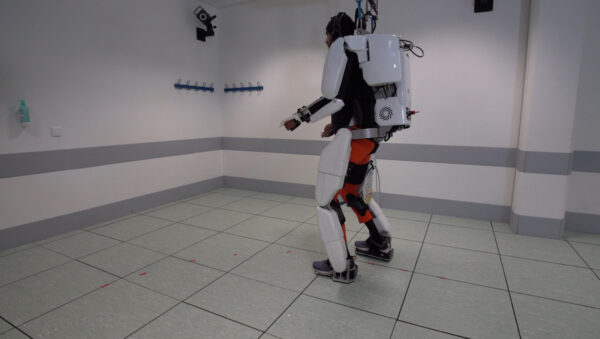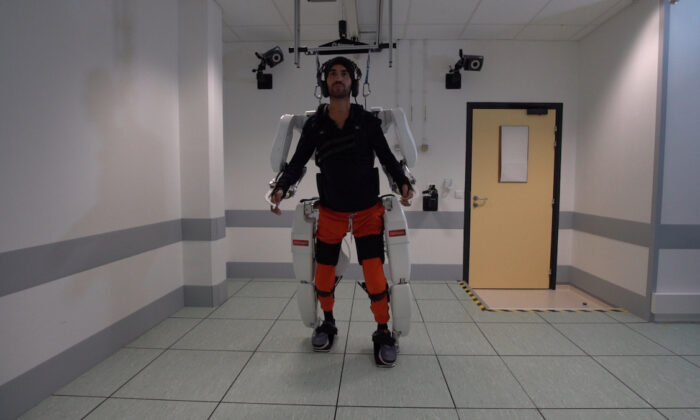Prague City Cancels Partnership Agreement With Beijing Amid Strained Ties
LONDON—A man paralyzed from the shoulders down has been able to walk using a pioneering four-limb robotic system, or exoskeleton, that is commanded and controlled by signals from his brain.
With a ceiling-mounted harness for balance, the 28-year-old tetraplegic patient used a system of sensors implanted near his brain to send messages to move all four of his paralyzed limbs after a two-year-long trial of the whole-body exoskeleton.
The results, published in The Lancet Neurology journal on Thursday, bring doctors a step closer to one day being able to help paralyzed patients drive computers using brain signals alone, according to researchers who led the work.
But for now, the exoskeleton is purely an experimental prototype and is “far from clinical application,” they added.
“(This) is the first semi-invasive wireless brain-computer system designed… to activate all four limbs,” said Alim-Louis Benabid, a neurosurgeon and professor at the University of Grenoble, France, who co-led the trial.
 A patient with tetraplegia walks using an exoskeleton in Grenoble, France, in Feb. 2019, in this still image taken from a video handout. (Fonds De Dotation Clinatec/La Breche/Reuters)
A patient with tetraplegia walks using an exoskeleton in Grenoble, France, in Feb. 2019, in this still image taken from a video handout. (Fonds De Dotation Clinatec/La Breche/Reuters)He said previous brain-computer technologies have used invasive sensors implanted in the brain, where they can be more dangerous and often stop working. Previous versions have also been connected to wires, he said, or have been limited to creating movement in just one limb.
In this trial, two recording devices were implanted, one either side of the patient’s head between the brain and the skin, spanning the sensorimotor cortex region of the brain that controls sensation and motor function.
Each recorder contained 64 electrodes that collected brain signals and transmitted them to a decoding algorithm. The system translated the brain signals into the movements the patient thought about and sent his commands to the exoskeleton.
Over 24 months, the patient carried out various mental tasks to train the algorithm to understand his thoughts and to progressively increase the number of movements he could make.
Commenting on the results, Tom Shakespeare, a professor at the London School of Hygiene and Tropical Medicine, said it was “a welcome and exciting advance” but added: “Proof of concept is a long way from usable clinical possibility.”
“A danger of hype always exists in this field. Even if ever workable, cost constraints mean that high-tech options are never going to be available to most people in the world with spinal cord injury.”
By Kate Kelland
This article is from the Internet:Paralyzed Man Walks Again With Brain-Controlled Exoskeleton
Innocent US Navy Veteran Released from Thai Prison After 14 Months Behind Bars
